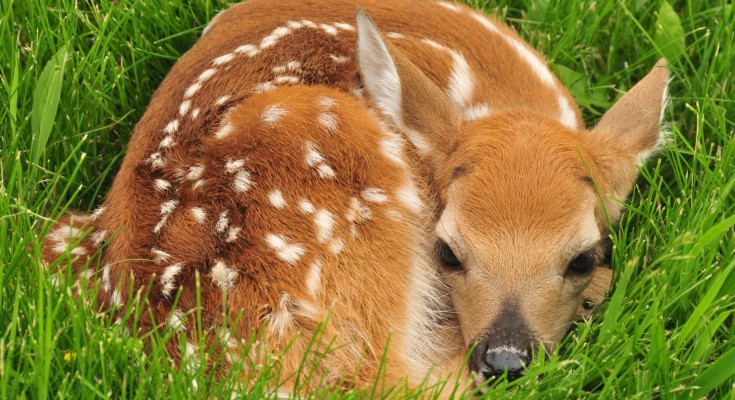
DOVER, DE — As spring blooms in Delaware, wildlife watchers are likely to encounter young animals, particularly deer fawns, that may seem abandoned. The Department of Natural Resources and Environmental Control (DNREC) urges the public to resist the urge to “rescue” these animals. Despite their vulnerable appearance, most young animals are not abandoned. Their parents are usually nearby, keeping a watchful eye from a distance.
Every year, concerned citizens come across seemingly helpless wildlife and feel the need to intervene. However, Sam Millman, a Delaware deer biologist with the DNREC Division of Fish and Wildlife, emphasizes the importance of leaving these animals in their natural habitat. “Removing fawns from the wild can be stressful for the mother and be detrimental to the future of the young deer,” Millman says. Young animals need to learn survival skills directly from their parents, and human interference often disrupts this crucial education.
Wildlife experts explain that many species, including white-tailed deer, leave their young alone while they forage for food. The young animals rely on their natural instinct to stay quiet and avoid detection by predators. This behavior can mislead observers into thinking the animals have been abandoned when, in fact, their mothers will return periodically to care for them.
Handling or removing wildlife can be harmful to both the animals and humans. DNREC advises several precautions:
- Observe from a distance if you see a young animal alone. It may take several hours for the mother to return.
- Be aware that wild animals can be unpredictable and may become dangerous if injured.
- Keep pets away from wild animals to avoid the spread of parasites like fleas and ticks or diseases such as rabies.
- Remember that it is illegal to raise or keep a wild animal in Delaware.
During the spring and summer months, outdoor activities increase, raising the risk of rabies transmission from wildlife to humans and pets. This adds another layer of importance to the recommendation to leave wildlife undisturbed and maintain a safe distance.
For those unsure whether a young animal needs help, DNREC suggests contacting the Delaware Council of Wildlife Rehabilitators and Educators. They can provide guidance on whether an animal is truly orphaned or simply exhibiting normal behavior. If you suspect an animal is injured or its parent is deceased, the DNREC Wildlife Section at 302-739-9912 can offer further instructions.
In summary, while it might seem kind-hearted to “rescue” a young animal, doing so often harms more than it helps. Leaving these animals alone allows them to thrive in their natural environment, ensuring they receive the care and education only their parents can provide. This practice not only supports wildlife health but also protects human safety, maintaining the balance between nature and human activity.
For the latest news on everything happening in Chester County and the surrounding area, be sure to follow MyChesCo on Google News and Microsoft Start.
